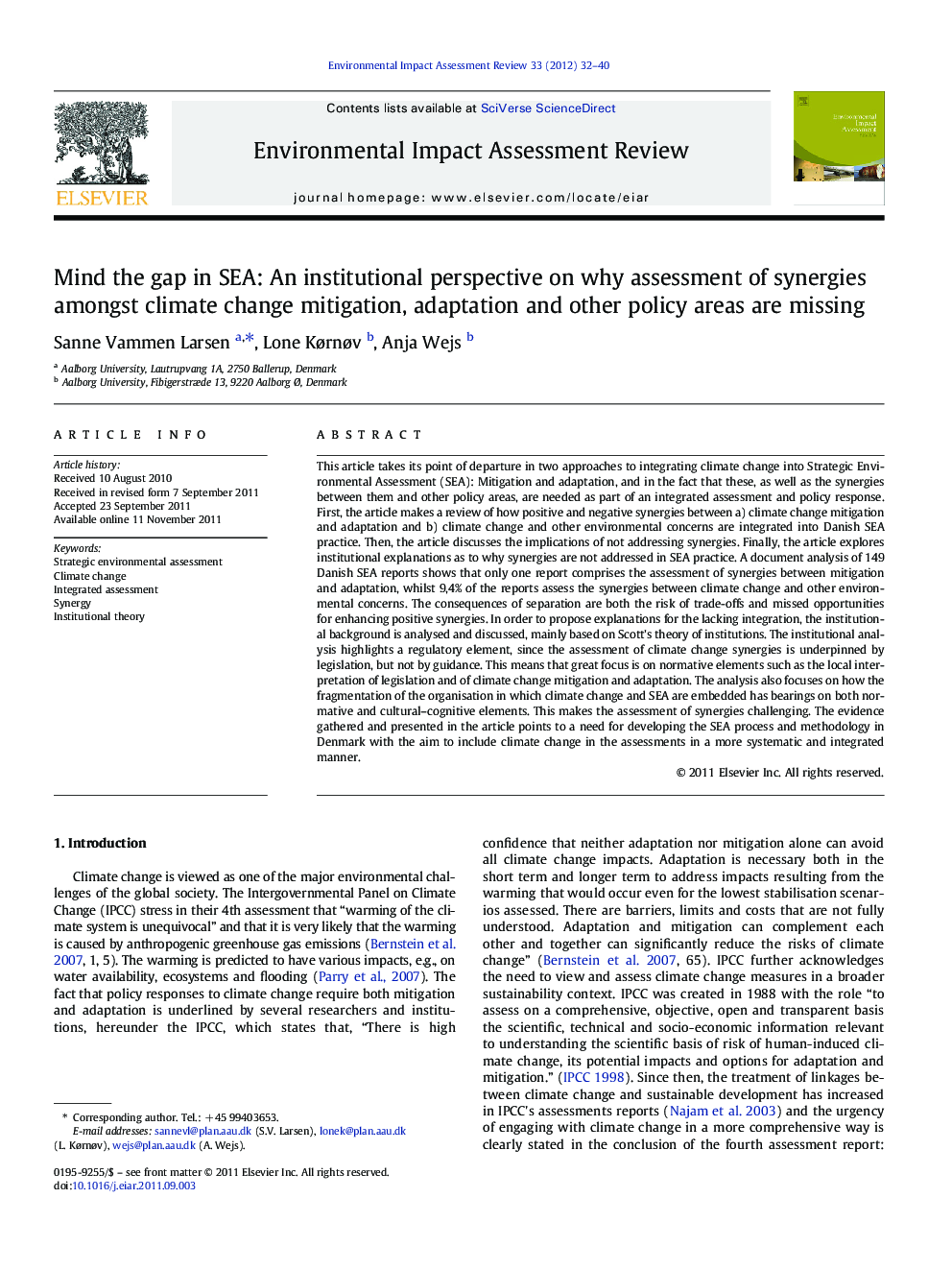| کد مقاله | کد نشریه | سال انتشار | مقاله انگلیسی | نسخه تمام متن |
|---|---|---|---|---|
| 1052863 | 946507 | 2012 | 9 صفحه PDF | دانلود رایگان |

This article takes its point of departure in two approaches to integrating climate change into Strategic Environmental Assessment (SEA): Mitigation and adaptation, and in the fact that these, as well as the synergies between them and other policy areas, are needed as part of an integrated assessment and policy response. First, the article makes a review of how positive and negative synergies between a) climate change mitigation and adaptation and b) climate change and other environmental concerns are integrated into Danish SEA practice. Then, the article discusses the implications of not addressing synergies. Finally, the article explores institutional explanations as to why synergies are not addressed in SEA practice. A document analysis of 149 Danish SEA reports shows that only one report comprises the assessment of synergies between mitigation and adaptation, whilst 9,4% of the reports assess the synergies between climate change and other environmental concerns. The consequences of separation are both the risk of trade-offs and missed opportunities for enhancing positive synergies. In order to propose explanations for the lacking integration, the institutional background is analysed and discussed, mainly based on Scott's theory of institutions. The institutional analysis highlights a regulatory element, since the assessment of climate change synergies is underpinned by legislation, but not by guidance. This means that great focus is on normative elements such as the local interpretation of legislation and of climate change mitigation and adaptation. The analysis also focuses on how the fragmentation of the organisation in which climate change and SEA are embedded has bearings on both normative and cultural–cognitive elements. This makes the assessment of synergies challenging. The evidence gathered and presented in the article points to a need for developing the SEA process and methodology in Denmark with the aim to include climate change in the assessments in a more systematic and integrated manner.
► Synergies between climate change mitigation, adaptation and other environmental concerns are not addressed in Danish SEA.
► Institutional explanations relate to organisational set-ups and understandings of climate change as a new planning issue.
► The paper points to a need for developing SEA to include climate change in a more systematic and integrated manner.
Journal: Environmental Impact Assessment Review - Volume 33, Issue 1, February 2012, Pages 32–40